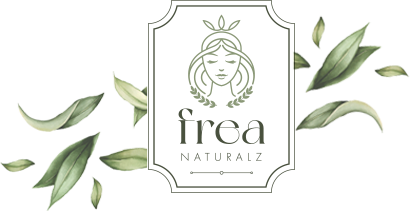MAG MAGAZINE September 2023
Naz DemirkılıçOlive, the Golden Healing of Civilization
Founder of Frea Naturalz, Dr. Naz Demirkılıç discusses the history of the olive tree and gives details about natural olive oils.
Olive, which has a place in mythology and on our table; It appears as a sacred food like wine and bread. It is known that the history of olives dates back thousands of years to the history of humanity. It is not known how many people it has shaded with its misty green leaves that shine like silver in the sunlight or how many people it has shared its fruits with, but the olive tree has been defined by its abundance and generosity for centuries. The legends written about him are from the "Epic of Gilgamesh"; The olive tree, which appears in many places in the three major religious books, has become a symbol of peace, holiness, purity and wisdom throughout history. The white dove holding an olive branch in its mouth represents peace and rebirth.
The olive tree, whose history dates back eight thousand years, is "the first of all trees." The olive tree, a long-lived plant, is known to live for an average of three hundred to four hundred years.
Although the majority of olive cultivation today is done in the Mediterranean region, olives can also be grown in certain regions of South Africa, China, South America, Australia, New Zealand, Mexico and the United States. In our country, the Aegean, Southern Marmara and Mediterranean regions are suitable for olive cultivation.
Just as the air, water, soil, people and history of each region are different, olives also undergo regional changes. Green, pink, purple, black, big, small, round, pointed, fleshy, wrinkled, scratched, broken, bitter, edible, pressed, etc., the olives of each region tell something about that region. The extra virgin olive oil obtained from this special fruit, whose fruit is beautiful and whose oil is precious, is defined as truly natural, unprocessed, additive-free "golden healing" or, in other words, "the healthiest fruit juice". In addition to being one of the most basic building blocks of the kitchen, olive oil not only adds flavor to the food but also works with all its might to make our lives easier. Although it is encountered in many areas from cosmetics to cleaning, its most distinctive feature is that it is a complete source of healing with its effects on our health.
As the harvest season of the olive, which has been described as a health elixir in many sources throughout history, approaches, it is obvious why we should consume this legendary fruit and its juice more often, due to its endless benefits. Although consuming unsaturated fats such as olive oil helps us be healthier in general, it has serious positive effects on cardiovascular health. Today, it has been proven in research that olive oil acts as a cancer preventer, blood circulation balancer and a natural anti-aging agent.
Consuming two spoons of olive oil a day for adults is important in protecting our general health, from digestion to immunity. It is known that olive oil, which serves as a basic nutrient not only for adults but also for children and babies, is the food closest to breast milk in terms of its linoleic acid value. Experts state that babies can start consuming olive oil along with the supplementary feeding process, and that it will make a significant contribution to the growth process and brain development thanks to the high oleic acid content and vitamin and mineral components it contains. It is also important because it supports the baby's digestive system during the transition from breast milk to complementary food.
Thinking about healthy life as a whole
and it needs to be adopted. This healing fruit, which is indispensable for a healthy life, is the source of life and our symbol of immortality, as Nazım Hikmet mentioned in his verses.
“So you'll take living so seriously
Even at seventy, for example, you will plant olives,
And not just to leave it to the children,
Because you are afraid of dying but you don't believe in death,
to live, that is, because it outweighs.”
We have a lot to learn from the verses of poets, to mythology, to our cuisines, and even from the olive tree, which has not only witnessed the existence of civilization but has become a pioneer...
Dr. Naz Demirkılıç

